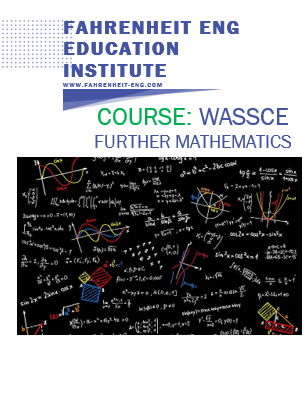Further Mathematics

About Course
The career paths and opportunities for students with a strong background in mathematics:
- STEM Fields:
- Engineer (various specializations)
- Physicist
- Computer Scientist
- Data Scientist
- Statistician
- Actuary
- Finance and Economics:
- Financial Analyst
- Investment Banker
- Economist
- Quantitative Analyst (“Quant”)
- Risk Analyst
- Actuary
- Technology and Computing:
- Software Developer
- Machine Learning Engineer
- Artificial Intelligence Specialist
- Cryptographer
- Operations Research Analyst
- Research and Academia:
- Mathematics Professor
- Research Mathematician
- Mathematical Biologist
- Astrophysicist
- Business and Management:
- Management Consultant
- Operations Manager
- Business Analyst
- Logistics Coordinator
- Government and Public Sector:
- Government Statistician
- Policy Analyst
- Defense and Intelligence Analyst
- Meteorologist
- Education:
- Mathematics Teacher (secondary or post-secondary)
- Educational Content Developer
- Mathematics Curriculum Designer
- Healthcare and Biomedical Fields:
- Biostatistician
- Medical Researcher
- Epidemiologist
- Bioinformatician
- Environmental Science:
- Climate Modeler
- Environmental Statistician
- Geospatial Analyst
- Engineering and Technology:
- Aerospace Engineer
- Robotics Engineer
- Telecommunications Engineer
- Quantum Computing Researcher
It’s important to note that many of these career paths may require additional specialized education or training beyond a mathematics degree. However, the strong foundation in mathematical thinking and problem-solving skills gained from studying further mathematics provides a versatile skill set that is applicable across many industries:
Furthermore, the analytical and logical thinking skills developed through advanced mathematics studies are highly transferable. This means that students with a strong mathematical background often find they can adapt to various roles, even those not directly related to mathematics.
For students considering their options, it’s beneficial to:
- Explore internships or research opportunities in areas of interest to gain practical experience.
- Consider double majoring or minoring in a complementary field to broaden career prospects.
- Stay updated with emerging technologies and fields where mathematical skills are in high demand.
- Develop strong communication skills to effectively convey complex mathematical concepts in various professional settings.
Student Ratings & Reviews

